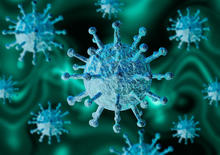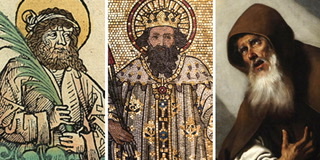
Most of you, maybe all of you, are past Covid-19 mandated restrictions. You are going out to eat, going to theaters, going to church, going to school, to ballgames, reunions, pools, parties and most every place you want to go—unmasked!
“Finally,” you say to yourself, “it’s way past the time of staying locked up! We’re free!” And everyone celebrates, ”No more masking! No more isolating! Just the sun and the sky and a bright and shiny future!”
Congratulations! You have broken out of this terrible Covid isolation. In doing so, you have abandoned about 7 million of us who are so immunocompromised, we must wait here in isolation until it is safe for us to break free. Our Covid isolation time is indeterminable because it’s based on so many unknown factors—the Covid trajectory itself, the level of immunosuppression a person has, other health problems and the age of the person, the availability of antibody medications, vaccines and boosters. AND does this person have even one antibody?
As for me (a kidney transplant patient taking massive doses of immunosuppressive medications), after two Covid vaccines and two boosters, my antibody tests revealed that I have zero (0) antibodies! So the very minute all the people threw their masks in the trash, I was abandoned in this unpredictable world of the indomitable, evolving Covid-19 virus and all of its 772 variants, including double and triple mutant variants.




I could not help but feel abandoned. No sooner than I could safely go unmasked after my kidney transplant, the pandemic descended and the mask returned to my Covid wardrobe. I am now a three-year mask wearer.
But there’s more . . . for me and 7 million other immunosuppressed people in this country. I spend time on several Facebook transplant support groups. So while I certainly do not know the experience of 7 million people, I do know literally hundreds of transplant patients through dialogue on various online platforms.
Here’s what I mean: group conversations on Facebook and Zoom patient support groups, dozens of them every month! In those conversations, I have heard the voices of confusion, despair, isolation, anger, frustration, indecision, fear, uncertainty . . . The people are saying things like this:
They keep telling us that some masks are not effective. What kind should we use? Where do we get them? When do we wear them? How? Where should we wear them? What if others don’t wear them?
We can’t find out whether or not we should get the vaccine—how manydoses? How many boosters? When to get them? Where to get them?
Doctors don’t know, hospitals don’t know, pharmacies don’t know!
Even my transplant center doesn’t know.
Wow, there’s this medication that has been authorized for emergency use for immunocompromised persons! It’s called Evusheld! It is not a vaccine, it’s antibodies, real antibodies because we don’t have any!
EVUSHELD? I can’t find it. What does it do? My doctor never heard of it!
I found some three hours from here, but they don’t have the okay to give it yet.
I flew across the country and finally got some.
No one knows what dose they’re supposed to give.
My transplant center doesn’t have it and they don’t know if they will get some.
I have searched the internet in every state and can’t find it.
Now that the public is not wearing masks, we need it, and we need it now before we contract Covid!
There’s a website that lists every facility in the US and how many doses they received. You could call and see if you might get an appointment.
I found a place that didn’t even know they had any, but they called around and got permission to give it.
All these sentiments, and more, reveal to me that those of us who have no or low immunity are abandoned in isolation limbo, while the rest of the people have broken free to resume a normalcy of life that is unavailable to the rest of us.
Think about us, the 7 million who can’t go with you to a movie or a restaurant. Pray for our safety. Pray for the our well-being that’s harmed by the continuing angst of isolation we are in. Send us positive thoughts. We’ll do the same for you, and hope you never have to say, ”Oh, the places I’ve been! I should have worn a mask.”
And may all of us hope for better, brighter, safer days from Covid, from gun violence, from hate crimes and mass shootings, from abuse, from environmental toxicity and natural disasters, from war, from domestic terrorism and from the dismantling of the civil rights and human rights we hold inviolable.
And may it soon be said of all of us, ”Oh, the places you’ll go!”










 This pandemic has taken a toll on so many Americans. Mothers are struggling with children being at home, some having to learn on the fly how to home school them. Families grieve the loss of loved ones who died from the virus. Older adults fear their increased vulnerability and their body’s inability to fight the virus. Immunosuppressed persons like I am are terrified to leave home and are incessantly washing their hands, wearing masks and using hand sanitizer. Many people have lost their jobs while businesses all over the country have shut their doors. Churches have suspended worship services and other gatherings indefinitely. That is merely a tiny snapshot of the human toll the coronavirus is taking.
This pandemic has taken a toll on so many Americans. Mothers are struggling with children being at home, some having to learn on the fly how to home school them. Families grieve the loss of loved ones who died from the virus. Older adults fear their increased vulnerability and their body’s inability to fight the virus. Immunosuppressed persons like I am are terrified to leave home and are incessantly washing their hands, wearing masks and using hand sanitizer. Many people have lost their jobs while businesses all over the country have shut their doors. Churches have suspended worship services and other gatherings indefinitely. That is merely a tiny snapshot of the human toll the coronavirus is taking.

 The book adapts the sacred use of Runes as an alphabetic script used by the ancient Germanic and Norse peoples, creating a tool that could be helpful in the healing of body, mind and spirit.*
The book adapts the sacred use of Runes as an alphabetic script used by the ancient Germanic and Norse peoples, creating a tool that could be helpful in the healing of body, mind and spirit.* The Rune I have randomly chosen is the Rune of Trust. It is the Rune of restoration that calls for the rebuilding of belief in yourself, in your life and in your relationship with God. For some, drawing this Rune asks you to show trust in a present situation. For others, it calls for embracing the changes you are facing with trust and wisdom. In relationships of the heart, remember that I love you and I trust you are two stones for crossing the same stream. Most importat is that you ask your soul if Trust has something to teach you or somewhere to lead you.
The Rune I have randomly chosen is the Rune of Trust. It is the Rune of restoration that calls for the rebuilding of belief in yourself, in your life and in your relationship with God. For some, drawing this Rune asks you to show trust in a present situation. For others, it calls for embracing the changes you are facing with trust and wisdom. In relationships of the heart, remember that I love you and I trust you are two stones for crossing the same stream. Most importat is that you ask your soul if Trust has something to teach you or somewhere to lead you.
